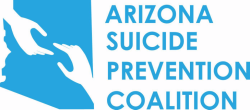Signs of Suicide Providing Support
|
Recognizing Warning Signs for Suicide
Understanding and recognizing the warning signs of suicide is crucial in helping to save lives by allowing timely intervention and support. 1. Behavioral Changes: Isolation: Withdrawal from friends, family, and social activities. Agitation or Irritability: Unexplained anger or restlessness. Giving Away Belongings: Disposing of personal possessions without a clear reason. 2. Emotional Indicators: Hopelessness: Expressing feelings of despair or lack of purpose. Drastic Mood Swings: Unexplained and intense shifts in mood. Sudden Calmness: A sudden sense of relief after making a decision to end ones pain through suicide. 3. Verbal Cues: Expressing Intent: Openly talking about wanting to die or ending their life. Feeling Like a Burden: Feeling like they are a burden to others. No Reason to Live: Expressing a belief that life is not worth living. 4. Changes in Sleep Patterns: Insomnia or Hypersomnia: Significant changes in sleep duration or quality. Nightmares: Frequent, disturbing dreams that may cause distress. 5. Substance Abuse: Increased Use: Escalation in alcohol or drug consumption. Self-Medication: Using substances to cope with emotional pain. 6. Drastic Changes in Appearance: Neglecting Personal Hygiene: A sudden decline in grooming habits. Extreme Weight Changes: Significant weight gain or loss without a clear cause. 7. Risky Behaviors: Recklessness: Engaging in dangerous activities without concern for consequences. Seeking Means: Trying to access lethal means like weapons or medications. If you observe any of these warning signs in someone you care about, it is crucial to take them seriously. Encourage them to seek professional help, and provide assistance and empathy. Your support and involvement can make a significant difference. |
Supporting Someone with Suicidal Thoughts
Supporting someone who is struggling with thoughts of suicide and understanding how to respond and offer compassionate assistance can make a significant impact on their well-being. 1. Open Communication: Listen Without Judgment: Create a safe space for them to express their feelings without fear of criticism. Ask Direct Questions: Gently inquire about their thoughts and feelings regarding suicide to understand their perspective. 2. Offer Empathy: Express Understanding: Acknowledge their pain and let them know you care. Validate Emotions: Confirm that their feelings are valid, and it's okay to seek help. 3. Encourage Professional Help: Suggest Therapy or Counseling: Recommend reaching out to mental health professionals for specialized support. Assist in Finding Resources: Provide information on local crisis hotlines, therapists, or support groups. 4. Stay Connected: Regular Check-Ins: Consistently check in on their well-being and offer ongoing support. Social Connection: Encourage them to engage in activities that bring joy and connection. 5. Create a Safety Plan: Identify Activations: Work together to recognize and manage activations that may exacerbate their feelings. Establish Emergency Contacts: Compile a list of trusted friends, family, or professionals to contact in times of crisis. 6. Remove Access to Means: Secure Lethal Items: Collaborate to ensure access to potentially harmful items is restricted. Medication Management: Discuss medication management with healthcare professionals. 7. Educate Yourself: Understand Mental Health: Learn about mental health conditions and treatment options to better understand their struggles. Recognize Warning Signs: Be aware of warning signs and take appropriate action when needed. Supporting someone with thoughts of suicide requires patience, empathy, and a commitment to their well-being. Remember that you are not alone; seek guidance from mental health professionals, and involve others in their support network. Together, we can make a positive difference. |
Disclaimer:
This information is not a substitute for professional advice. If you or someone you know is in crisis, please reach out to a mental health professional or contact a helpline like 988 immediately.
This information is not a substitute for professional advice. If you or someone you know is in crisis, please reach out to a mental health professional or contact a helpline like 988 immediately.
